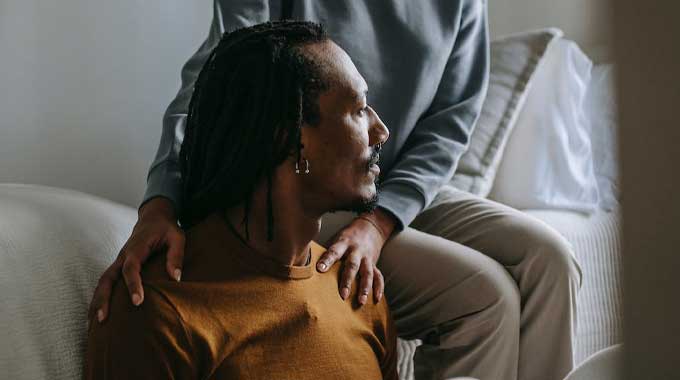“The opposite of addiction is not sobriety, but human connection” – Johann Hari
People tend to focus on the damaging physical and psychological effects of substance misuse; however, it affects many areas of one’s life, including relationships.
Addiction makes it hard to maintain open communication, trust, and respect, which are vital in maintaining healthy relationships. Substance abuse forces a person to become preoccupied with obtaining and using their substance of choice, to the detriment of everything else. This tends to cause the individual to neglect their responsibilities and the needs of their loved ones. As a result, their partner, family, and friends will likely feel betrayed, hurt, and angry causing further deterioration of relationships.
Addiction is a treatable illness, and through the process of recovery, relationships can be rebuilt. This article explores the complex effect that addiction has on relationships and the methods in which they can be healed during treatment and beyond. Below are some of the relationship issues which will likely need navigating.
Enabling
Enabling stems from a misguided attempt to help a loved one struggling with substance abuse. This flawed response typically occurs when a person struggles to set boundaries within a relationship. Classic enabling could be allowing the user to live rent-free or without responsibility, turning a blind eye to their substance abuse, or even paying for it.
Enabling actions can also include:
- Attempting to minimize the negative consequences of a loved one’s drug abuse.
- Taking on responsibility for their actions, behaviors, and feelings.
- Accepting blame and making excuses for them.
Codependency
In codependent relationships, those involved become so entwined that their identities become inseparable. Both parties sacrifice their own needs for the other and take on martyr roles. This results in needs not being met and for frustration and resentment to arise on both sides. Frequently one person in the relationship displays more codependent traits than the other, giving them the role of caregiver. Enabling plays a key part in codependent relationships as the caregiver will make excuses for the other person, cover up negative behaviors, or resolve situations to save them from having to deal with negative consequences.
Codependent actions include:
- Being overly cautious of the other person’s moods and emotions.
- Attempting to control the other person in the guise of protecting them.
- Having low self-esteem.
- Overly focusing on the needs of their loved one.
- Compromising their own needs to keep their loved one happy.
- Maintaining commitment and loyalty despite lack of reciprocation.
Secrecy
It is common for substance misusers to lie about or hide their substance abuse. This can be due to a fear of being prevented from using or feelings of guilt and shame. They may also experience anxiety over the judgment of others and the possibility of conflict. Secrecy is symptomatic of drug addiction and leads to profound disconnection, isolation, and distrust of others.
Trust is a vital element if a relationship is to flourish, and a lack of trust can cause conflict, anger, fear, and resentment.
Displays of Negative Emotion
Some drugs cause increased irritability and hostility, whereas others have withdrawal symptoms that trigger aggression, anger, and violence. Users emotions will be precarious, and they can put themselves and their loved ones at risk. People must take care of their own needs and remove themselves from situations where they feel afraid or threatened. If a relationship has reached this point, it can only be rebuilt once the individual has entered recovery, manages their withdrawal symptoms, and is committed to their journey towards sobriety.
Read more: Rehab Santa Ana, CA
Repairing Relationships
The first step in rebuilding a relationship is for the user to commit to their long-term recovery. Successful relationships can thrive under the following key principles:
- Allow for individuality and for each person’s unique needs to be met.
- Focus on using empathic, honest, and assertive communication.
- Encourage compromise and understanding.
- Create trust and transparency.
- Treat each with respect and not aggression.
- Allow for each person to focus on their goals and thrive.
- Foster intimacy and affection.
Relationships are complex and require effort to maintain, even without the presence of substance misuse. Couples counseling and family therapy are a highly beneficial aid to better understand how substance abuse has affected those involved and how it has impacted their psychological, physical, and social health. Mutual therapy can also help develop communication skills, rebuild trust, and teach healthy ways to support a loved one struggling with substance misuse without engaging in enabling or codependent behaviors.






